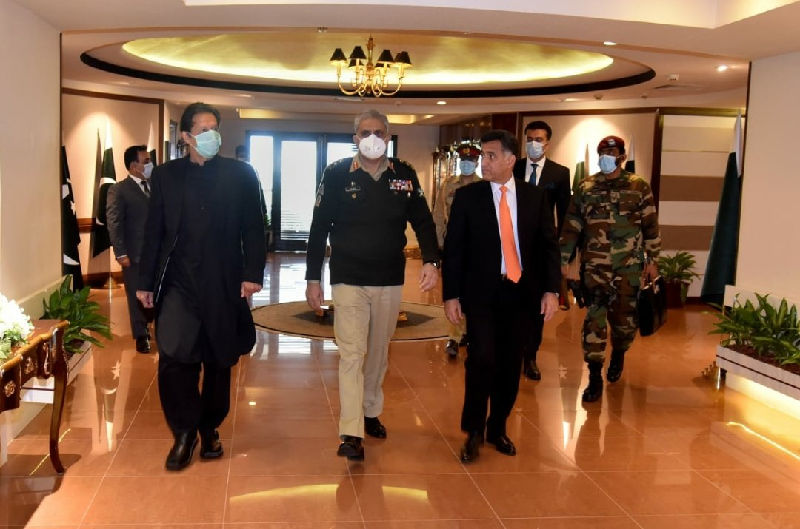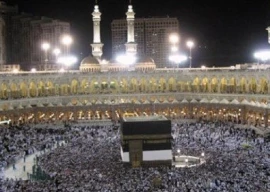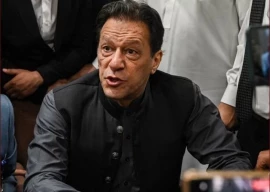
Pakistan’s top civil and military leadership on Sunday visited the headquarters of the country’s prime spy agency – the Inter-Services Intelligence (ISI) – for a rare huddle that came against the backdrop of a host of regional developments that may have implications for the country.
According to a statement issued by the PM office, Prime Minister Imran Khan, along with Foreign Minister Shah Mehmood Qureshi, Minister for Planning Asad Umar, Chairman Joint Chiefs of Staff Committee General Nadeem Raza, army chief General Qamar Javed Bajwa, Air Chief Marshal Mujahid Anwar Khan, naval chief Admiral Amjad Khan Niazi, Chief of General Staff Lt General Sahir Shamshad Mirza and Foreign Secretary Sohail Mahmood visited the ISI office in the federal capital.
ISI Director General Lieutenant General Faiz Hamid received the visitors at the Directorate General.
“A comprehensive briefing was given to the national and military leadership on the regional and national security situation. Prime Minister Imran Khan appreciated the tireless efforts of the ISI for the national security and expressed his satisfaction over its professional preparedness,” it said.
The statement did not provide any further details but observers believe the high level huddle might have been prompted by the recent developments in the region including the establishing of diplomatic ties between Israel and Arab countries and assassination of an Iran scientist.
Foreign Minister Qureshi, who returned from Niger after attending a two-day meeting of the Organization of Islamic Cooperation (OIC) foreign ministers, is believed to have briefed the meeting about his interaction with his Saudi counterpart.
Pakistan has denied that it is under any foreign pressure to recognize Israel. However, the warming of ties between Israel and Arab countries and the changing dynamics may push Islamabad to at least debate different options.
Prime Minister @ImranKhanPTI visited Inter Services Intelligence (ISI) Headquarters earlier today. pic.twitter.com/jIz3rDmYCx
— Prime Minister's Office, Pakistan (@PakPMO) November 29, 2020
The recent assassination of top nuclear scientist of Iran allegedly by Israel is another development that may further complicate Pakistan's foreign policy challenges.
The killing of Mohsen Fakhrizadeh, analysts fear, may stoke a new wave of tensions in the already volatile region. John Brennan, a former chief of the CIA, termed the assassination of Fakhrizadeh as "criminal and reckless act" which may lead to a war in the region.
Any conflict between Iran and Israel as well as its allies will have direct implications for Pakistan. This may also undermine the ongoing peace efforts in Afghanistan.
The current tense situation at the Line of Control (LoC) – the de facto border dividing the Himalayan valley of Jammu and Kashmir between Pakistan and India –is another issue that is likely to have come under discussion during the huddle at the ISI headquarters.
India has in the recent months stepped up ceasefire violations along the LOC and Pakistan fears this situation may further escalate in coming weeks.
1732521023-0/biden-(1)1732521023-0-405x300.webp)
1732520496-0/BeFunky-collage-(86)1732520496-0-165x106.webp)
1732519472-0/lamar-(3)1732519472-0-165x106.webp)
1732519298-0/BeFunky-collage-(85)1732519298-0-165x106.webp)

1732522586-0/Copy-of-Untitled-(80)1732522586-0-270x192.webp)
1732515558-0/Copy-of-Untitled-(76)1732515558-0-270x192.webp)










COMMENTS
Comments are moderated and generally will be posted if they are on-topic and not abusive.
For more information, please see our Comments FAQ